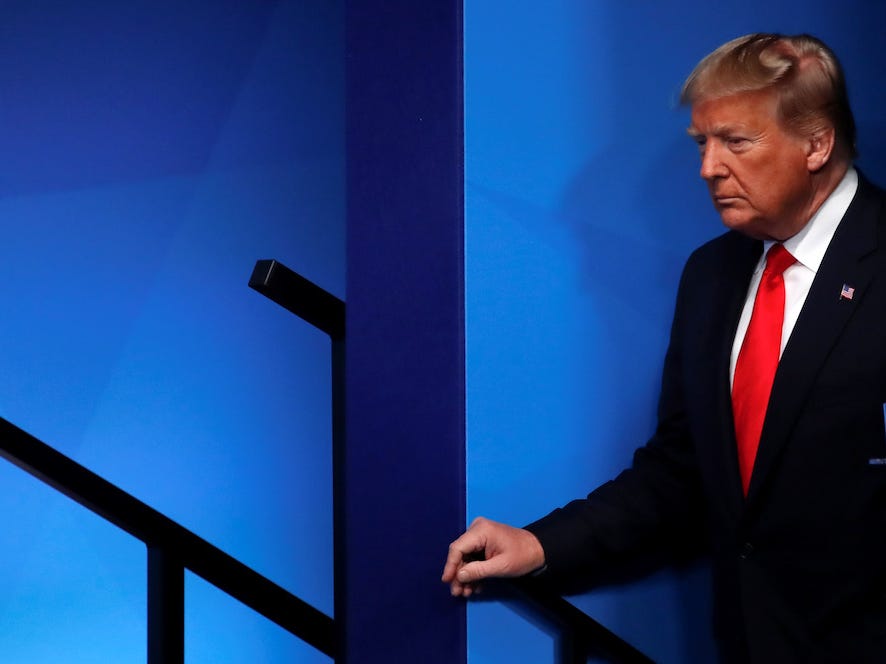
A president enjoying the lowest unemployment rate in decades and a booming stock market. He is about to score a major legislative victory with the passage of a significant trade deal, has appointed two Supreme Court justices and has signed a major tax bill into law. Most voters say they’re better off financially than when he took office.
Things seem to be going great.
Now, imagine this: a polarizing president under investigation, mocked by allies abroad and assailed at home with an understaffed administration. He’s about to be impeached by the House and undergo a divisive trial in the Senate. Nearly half of voters believe he should be removed from office and 60 percent say they’re unsatisfied with the direction of the country, according to polling this week.
Things seem to be going disastrously.
Both of these scenarios describe the current state of the Trump administration.
Call it the split-screen presidency.
In an era of “alternative facts” and hyper-polarization, partisans from both sides are telling a totally different story about President Trump’s time in Washington. In recent days, they don’t even seem to be reading from the same book.
After three years of the Trump administration, what’s fascinating to me is not that this divisive dynamic exists, but how long it’s endured.
Take Mr. Trump’s approval rating. Shortly after he entered office, it hovered around 43 percent, according to the Gallup tracking poll. The most recent rating? Forty-three percent.
Whatever you thought of the president in January 2017 is likely what you think about him today.
Even Americans’ changing positions on impeachment do not correspond with any shift in their fundamental views about Mr. Trump. The percentage of Americans who back impeaching the president has grown since the summer, up 10 points to 45 percent in a poll released today by the Monmouth University Polling Institute. But the increase in support stems from those who already held negative views about Mr. Trump and have come around to the idea of impeachment as a smart strategy, pollsters say
“It’s not like anyone has changed their mind about their underlying opinions on Donald Trump and the job he’s doing,” said Patrick Murray, who runs Monmouth’s poll. “They’ve changed their mind on how you get him out of office.”
So, what does this all portend for the 2020 election? Well, about what you’d expect.
According to Lisa Lerer, most strategists, pollsters and campaign officials expect the next general election, like the previous one, to be a close and nasty race, fought on the margins. Because Americans’ views on Mr. Trump are already set, Mr. Murray argues that much of the campaign will turn into a referendum on the Democratic nominee.
“The campaign is not going to be about changing opinion about Donald Trump,” he says. “It’s going to be about hammering away at the Democratic nominee and bloodying them up so much that people will stick with the guy they know.”

